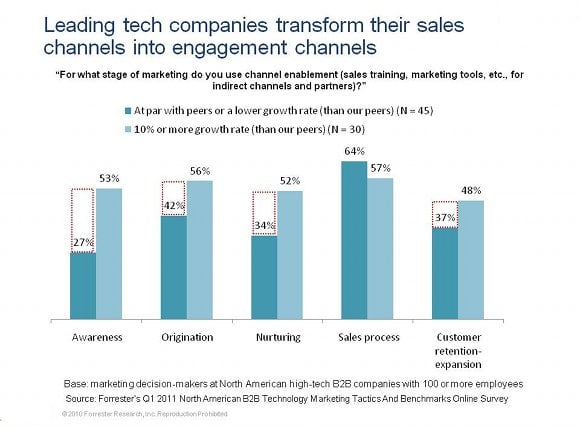This article is more than 1 year old
Some vendors know how to treat a channel
Are you getting what you want?
Market analysis Current research indicates that we are seeing vendor-channel partner relationships changing quite dramatically, and for the better.
Let’s be honest: the old-school formula for channel effectiveness was based on a cost-determined division of labour: Tech vendors invented, marketed, and then sold direct to the bigger, more profitable customers; and they spread the business crumbs of smaller, less profitable customers to channel partners. Most tech vendors treated the channel as a low-cost, low-capability sales channel.
We analysts spend a lot of time being briefed by vendors about their channel programmes, among other things. Some of them even listen to our feedback, which is based on what their channel partners tell us when we interview or survey that audience in addition to comparing the programmes across competing vendors.
In recent months, we’ve noticed a definite rise of more complete channel enablement.
What I mean is that vendors are investing and working with channel partners on many more things than just selling. While channel marketers have long supplied technology and sales enablement/training programmes for their channel partners, they now also address the much earlier phases of the customer technology adoption life cycle and provide marketing trainings and marketing platforms. Some vendors are now also focused on the service phase and encourage partners to chase service renewal business – even providing them with technology services to accelerate this process.
In fact, our data shows that the successful vendors, as defined by their growing more quickly than their peers in the same market segment, are investing much differently in their channel programmes.
See below:

If you are a channel partner, do you agree or disagree with this observation? Has it affected your business results? And, more importantly, have you analysed your current vendor relationships based on these changes?
I would like to kick off a dialogue in this first posting, so feel free to comment directly on this article or send me an email if you prefer a more direct (and private) exchange. If you provide an email address, I’ll even send you the research reports I quote from. ®
